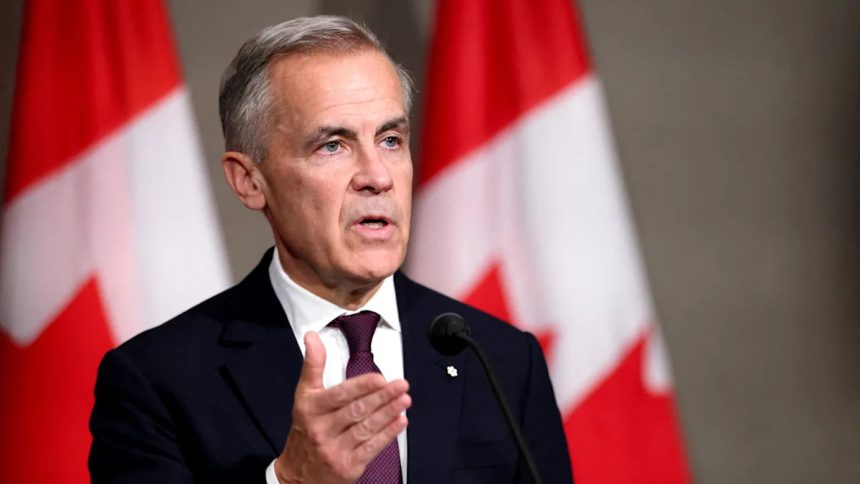A Conservative MP’s decision to cross the floor and join the Liberal party is “exceptionally valuable”, Canadian Prime Minister Mark Carney said on Wednesday, as he looks ahead to passing his first federal budget.
Chris d’Entremont from Nova Scotia defected to the Liberals on Tuesday shortly after Carney put forward his fiscal plan, inching the Liberal government closer to a majority.
Speaking to reporters on Wednesday, d’Entremont said he left because he no longer felt represented by Conservative opposition leader Pierre Poilievre.
Poilievre and his party have criticised Carney’s budget as doing little to address the cost of living while ballooning Canada’s deficit.
In a statement, the Conservative party accused d’Entremont of breaking his promises to the Canadians who elected him, and of defecting due to “personal grievances” with the party.
Nova Scotia’s d’Entremont resignation sent shockwaves through Ottawa on budget night.
In announcing his decision to leave, d’Entremont said he supported the Liberal budget and that it “hits the priorities” he has heard from people in his constituency.
“I came to a clear conclusion: there is a better path forward for our country,” he said.
At a news conference on Wednesday, he criticised Conservative leader Poilievre for what he said is his “negative” style of politics.
The MP won his riding narrowly last April in the riding of Acadie-Annapolis, coming ahead of the Liberal candidate by just one percentage point.
His decision to defect comes ahead of a scheduled leadership review for Poilievre in January and amid wider criticisms that his combative style of politics contributed to the Conservatives’ election loss earlier this year.
It also pushes Carney’s Liberals closer to a majority, as the prime minister looks to pass his government’s first budget through parliament. Failure to do so could risk another election.
On Wednesday, Carney appealed for more allies. “We’ll speak to anyone publicly or otherwise who can support us,” he said.
Carney later walked with the new Liberal MP into his first national caucus meeting, where they were greeted with applause.
A vote on the budget is expected to be held mid-November.
Carney’s government has called the fiscal plan as an “investment budget” meant to attract capital to Canada and shield it from the impact of US tariffs imposed by President Donald Trump.
It increases Canada’s deficit to C$78bn ($55.3bn; £42.47bn), the second largest in history, but also includes cuts like slashing the size of the federal workforce by 10% in the coming years.
The Conservatives and the Quebec sovereigntist party the Bloc Québécois have both indicated they will oppose it.
“This costly budget forces Canadians to spend more on debt interest than on healthcare transfers,” said Poilievre in the House of Commons on Tuesday evening.
The left-leaning New Democratic Party’s interim leader Don Davies said they still want time to study the budget before they decide. The party holds seven seats.









